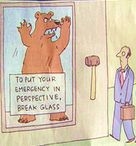does respifacile aid breathing?
-
Alexandre
Re: does respifacile aid breathing?
Depend of your type of sleep apnea.
If yours is "obstructive" sleep apnea with constant nasal congestion as major component, yes Respifacile works fantastic.
But if those 2 conditions aren't combined, sorry mask will be indispensable.
Of course losing weight, increasing pharynx muscles tonus by respiratory exercices and avoiding myo-relaxants (alcohol, pills) + heavy late dinner would solve 80% for most people.
Bottom line, there's no miracle by one single solution. Sleep apnea is multi component pathology, so acting even little on several fronts is smartest way for those who are fed up of the mask.
I sleep every night with Respifacile and it worked great for my sleep apnea, but my nose was the biggest origine and also I lost 45lbs, because was really really fed up with the mask. Respifacile helps simply because it opens much much more the nasal valve compared to others 20 sticky or plastic nasal dilators. I tried them ALL.
Btw, the excellent doctor I read about who refer for Respifacile isn't a myth and easy to check: Dr David Bianchi, ENT Specialist, one of the bests. From Silver Spring, MD, USA
Lastly the product is actually german manufactured. French doctors did only the conception.
If yours is "obstructive" sleep apnea with constant nasal congestion as major component, yes Respifacile works fantastic.
But if those 2 conditions aren't combined, sorry mask will be indispensable.
Of course losing weight, increasing pharynx muscles tonus by respiratory exercices and avoiding myo-relaxants (alcohol, pills) + heavy late dinner would solve 80% for most people.
Bottom line, there's no miracle by one single solution. Sleep apnea is multi component pathology, so acting even little on several fronts is smartest way for those who are fed up of the mask.
I sleep every night with Respifacile and it worked great for my sleep apnea, but my nose was the biggest origine and also I lost 45lbs, because was really really fed up with the mask. Respifacile helps simply because it opens much much more the nasal valve compared to others 20 sticky or plastic nasal dilators. I tried them ALL.
Btw, the excellent doctor I read about who refer for Respifacile isn't a myth and easy to check: Dr David Bianchi, ENT Specialist, one of the bests. From Silver Spring, MD, USA
Lastly the product is actually german manufactured. French doctors did only the conception.
- chunkyfrog
- Posts: 34397
- Joined: Mon Jul 12, 2010 5:10 pm
- Location: Nebraska--I am sworn to keep the secret of this paradise.
Re: does respifacile aid breathing?
Hmmm, another one?
Not registered.
I can easily see money changing hands.
The frog does not need to be psychic.
Not registered.
I can easily see money changing hands.
The frog does not need to be psychic.
_________________
| Mask: AirFit™ P10 For Her Nasal Pillow CPAP Mask with Headgear |
| Additional Comments: Airsense 10 Autoset for Her |
- Sir NoddinOff
- Posts: 4190
- Joined: Mon May 14, 2012 5:30 pm
- Location: California
Re: does respifacile aid breathing?
I've had good luck with the SnorePins nasal dilators and have used them for several years. Naturally, you have to clean them with soap and water after every use. I also have to secure the U shaped part with a 2" x .25" strip of Nexcare paper tape (which I cut it with scissors) but that's easy to do. The 1/4" tape runs from my nares over the top of the U bend. Sliding out is always a problem with these devices and the tape prevents that. Snorepins seem to run on the large side so I had to use an Xacto knife to cut off the one last segment that goes into my nose... do it carefully and don't leave any rough edges. NO, I don't work for Snorepins (before you ask)
http://www.amazon.com/Snorepin-Solution ... al+dilator
If anybody needs more info about fitting them or how to get used to them etc, just PM me. Also: they claim to stop apnea and snoring, but ignore that claim... they don't. They just open up your nostrils - that's all - however that's enough for me and well worth the money.
http://www.amazon.com/Snorepin-Solution ... al+dilator
If anybody needs more info about fitting them or how to get used to them etc, just PM me. Also: they claim to stop apnea and snoring, but ignore that claim... they don't. They just open up your nostrils - that's all - however that's enough for me and well worth the money.
_________________
| Mask: AirFit™ F10 Full Face Mask with Headgear |
| Additional Comments: Sleepyhead software v.0.9.8.1 Open GL and Encore Pro v2.2. |
I like my ResMed AirFit F10 FFM - reasonably low leaks for my ASV therapy. I'm currently using a PR S1 AutoSV 960P Advanced. I also keep a ResMed S9 Adapt as backup. I use a heated Hibernite hose. Still rockin' with Win 7 by using GWX to stop Win 10.
Re: does respifacile aid breathing?
Obstructive apnea refers to your airway (throat) being closed, not your nose. If that stuff opens your nose, terrific, but it won't solve diagnosed apnea.
_________________
| Mask: Ultra Mirage™ Full Face CPAP Mask with Headgear |
| Humidifier: IntelliPAP Integrated Heated Humidifier |
Re: does respifacile aid breathing?
But it may reduce the severity.Julie wrote:Obstructive apnea refers to your airway (throat) being closed, not your nose. If that stuff opens your nose, terrific, but it won't solve diagnosed apnea.
https://sleepfoundation.org/sleep-topic ... -and-sleep
"""Obstructive sleep apnea (OSA), a sleep disorder in which breathing is briefly and repeatedly interrupted during sleep, is linked with allergic rhinitis. OSA occurs when the muscles of the throat relax and fail to hold the airway open during sleep. People with OSA may suffer from severe daytime sleepiness and a range of chronic health problems such as heart disease, stroke, and sexual dysfunction. Nasal congestion, which causes the upper airway to narrow, increases the risk of both snoring and OSA among allergic rhinitis patients. The good news is that reducing nasal inflammation may reduce symptoms of snoring and OSA as well as daytime fatigue and sleepiness, according to at least one study. This is particularly important for those OSA patients who have trouble with continuous positive airway pressure(CPAP) devices because of nasal congestion.""
And in my case, I kept getting apnea/hypopnea clusters because my nose was extremely dry and congested as a "wonderful" benefit from the septoplasty. I had to keep raising the pressures until I finally hit the right one. Even so, when I wake up prematurely, because my nose is dried out and congested from the machine no matter how much or little humidity I use, I have to raise the pressure a little to avoid more clusters. Very frustrating.
Anyway, my point is that the nose has lot more impact in apnea than you might think.
49er
PS - In case people are wondering, nasal rinsing does not help and makes the problem worse. Ayre gel has not helped previously but I am going to give it another shot just to make sure.
_________________
| Mask: SleepWeaver Elan™ Soft Cloth Nasal CPAP Mask - Starter Kit |
| Humidifier: S9™ Series H5i™ Heated Humidifier with Climate Control |
| Additional Comments: Use SleepyHead |
- chunkyfrog
- Posts: 34397
- Joined: Mon Jul 12, 2010 5:10 pm
- Location: Nebraska--I am sworn to keep the secret of this paradise.
Re: does respifacile aid breathing?
Good point. My DH and I both find relief with Breathe Right Strips,
but I only need one when I have a cold. His congestion happens when he lies down.
but I only need one when I have a cold. His congestion happens when he lies down.
_________________
| Mask: AirFit™ P10 For Her Nasal Pillow CPAP Mask with Headgear |
| Additional Comments: Airsense 10 Autoset for Her |
Re: does respifacile aid breathing?
+1, totally agree49er wrote:...reducing nasal inflammation may reduce symptoms of snoring and OSA as well as daytime fatigue and sleepiness, according to at least one study. This is particularly important for those OSA patients who have trouble with continuous positive airway pressure(CPAP) devices because of nasal congestion.""
...Anyway, my point is that the nose has lot more impact in apnea than you might think.
PS - In case people are wondering, nasal rinsing does not help and makes the problem worse.
Sleep apnea is much simpler to understand than it appears.
It's just a question of balance between how low we go in depression during inspiration (which depends 60% of nasal resistance) in one hand and the rigidity +diameter of respiratory walls in the other hands.
Exactly in the same way that for smoothies in McDonald's, they give a more rigid black straw with bigger diameter, because the resistance and depression will be higher by smoothies higher viscosity to move up inside the straw.
For water or Cokes, a more fragile straw is enough.
So all different approaches for OSA act on one of these only FOUR causes: Pression, resistance, diameter and muscle tonus for rigidity.
Not rocket science. Only those 4 factors to improve to get rid of the mask. (in obstructive type of course which is about 84% of all apnea)
https://en.wikipedia.org/wiki/Sleep_apnea
For example:
1- Mask CPAP act on "pressure"
2- Nasal dilators act on "resistance" and thus on "pression" too
3- Septoplasty on "resistance"
4- Dental mandibular devices on "diameter" of pharynx
5- Losing weight on "diameter"
6- Respiratory exercices on "tonus" of pharynx
7- Alcohol, pills or heavy dinners act on "tonus"
8- Allergies act on "diameter" by inflammation
9- Sleep on back decrease diameter
etc...
To reach the collapse level, called OSA, it's ALWAYS a combination of all those, but at very variable % of each.
What matters is the addition of those causes in different proportions, to not reach the collapse level.
So just looking in the mirror, we can all honestly evaluate our:
1) Level and chronicity of nasal congestion = Resistance
2) If air comes easily to lungs (work of breathing) = Air Depression
3) Our weight and size of tongue (1kg taken is 1gram added on the tongue) = Diameter
4) Our fat global %, alcohol or pills etc all factors decreasing respiratory walls tonicity and thus easier to collapse. = Tonus
(would be changing the smoothie straw of McDonald's for a standard thinner Coke straw.
Smart way is to act even very little on all 4 at the same time, and not starting by "i must lose 40kg" which would be the hardest way to start.
Just a little, but simultaneously on all 4 causes, that works.
And as external solution like "CPAP mask" or "Respifacile nasal dilator" or "dental mandibular advancement splint" or "septoplasty"... Before choosing, il will depend on which of those 4 causes is predominant and major cause.
It's really case by case, and the "everybody on CPAP mask" current policy, without seriously profiling each patient case by case, is ridiculous.
Sometimes 2-3 external solutions can even be combined.
For example everybody knows CPAP mask's positive pressure closes nasal airways, so CPAP facial masks can be combined to respifacile nasal dilator, or this latter combined also to mandibular advancement splint. http://www.respifacile.com/sleep-apnea
Bottom line: CASE by CASE and really profiling each patient habits, bed, diet, life style, morphology... all factors which can be improved.
Here in Europe, it's all "one night sleep analysis, bad news you had 230 OSA... here your mask, good luck!". CPAP is sometimes just vital and the only indispensable solution, but absolutely not the one solution for all OSA (Obstructive Sleep Apnea).
PubMed an old 2002 article still relevant http://www.ncbi.nlm.nih.gov/pubmed/12486888
Last edited by Alexandre on Thu Oct 15, 2015 3:23 am, edited 1 time in total.
Re: does respifacile aid breathing?
Also for those preferring nasal strips style, BreatheRight has a "Extra" version which is claimed 50 percent stronger, and if your skin can stand it, it could be to try.
Re: does respifacile aid breathing?
Alex - you completely misquoted me - I did not say any of that and can't even find who did say it on the page!
_________________
| Mask: Ultra Mirage™ Full Face CPAP Mask with Headgear |
| Humidifier: IntelliPAP Integrated Heated Humidifier |
Re: does respifacile aid breathing?
Sorry, I had touched the wrong botton, now it's correctedJulie wrote:Alex - you completely misquoted me - I did not say any of that and can't even find who did say it on the page!
Re: does respifacile aid breathing?
Thanks!
_________________
| Mask: Ultra Mirage™ Full Face CPAP Mask with Headgear |
| Humidifier: IntelliPAP Integrated Heated Humidifier |
- Whale Road
- Posts: 33
- Joined: Tue Aug 25, 2015 9:44 am
Re: does respifacile aid breathing?
That's just not true, and it represents the major fallacy in you promotion of respifacile for apnea patients.Alexandre wrote:For example everybody knows CPAP mask's positive pressure closes nasal airways
Nasal pillows inflate the nasal airway. If I watch in the mirror as I turn my CPAP on, I can see my nostrils becoming wider as the CPAP pressure builds.
Even if you require a FFM, there are available the Liberty and Hybrid masks which cover mouth and nose and use pillows for the nasal interface. Both of these masks inflate the nasal airway.
Re: does respifacile aid breathing?
Alexandre wrote:For example everybody knows CPAP mask's positive pressure closes nasal airways
The very existence of those "nasal pillows" is proof of mechanical necessity to maintain the anterior nasal valve from collapsing under CPAP positive pressure.Whale Road wrote:That's just not true, and it represents the major fallacy in you promotion of respifacile for apnea patients.
Nasal pillows inflate the nasal airway. If I watch in the mirror as I turn my CPAP on, I can see my nostrils becoming wider as the CPAP pressure builds.
Even if you require a FFM, there are available the Liberty and Hybrid masks which cover mouth and nose and use pillows for the nasal interface. Both of these masks inflate the nasal airway.
Am glad you're happy with your system but many aren't so lucky.
My humble opinion as doctor with 2 post-PhD in maxillar surgery and Biomaterials, and most importantly I have a triple fracture of my nose since 12 years old, and had an entire life of fighting just to breathe by nose. Everything you could imagine I tried: bilateral surgery of my maxillar sinus, all rincing, inhaling, antibiotics (now am resistant even to Augmention (Amoxicillin+Clavulanic acid) + Medrol and other corticoids...), nasal dilators external, internals, plastic, copper... All all all, I tried just everything.
At only 30 years old had to sleep with a ResMed Mirage CPAP... very sexy... fortunately my wife is an angel and support me constantly.
I even worked with ResMed and Air Liquide on their air leakage problems and >50% abandon of CPAP to improve.
My last comment had 4 real components (nasal valve resistance, inspiration's depression (degree and duration), diameter (where the anterior nasal valve is the narrowest section) and finally muscle airways tonus to resist the collapse) in OSA, and why the smartest medical logic is acting on causes, before compensating 1 anomaly by another.
Also insisted in the case by case approach so much patients profiling is excessively variable. Just my opinion: CPAP works for everybody, so the lazy medical approach is to give it all the time.
In reality perhaps 50% of OSA could just by acting on the 4 factors (nasal resistance, duration + level of depression at inspiration and airway tonus) get rid of CPAP.
I gave 9 examples of how.
A constant positive pression in respiratory system, is just not the way the nature made us.
In some cases yes CPAP is the only and indispensable vital solution, but if patients could benefit of real profiling, and encourage to improve even little, those 4 causal factors according to their causal proportions, double digit OSA patients could get rid of CPAP. And it's based on thousands of my own patients.
Sorry for my poor english, and those are just my opinion. Still I could easily defend them in any congress and big names, by STATS and NUMBERS. Real human being cases.
Re: does respifacile aid breathing?
A doctorate does not change the real life experience of thousands using C/Apap who have no nasal issues and who understand that it stents open your airway at the throat. Whether or not you have nasal blockage is not the point. It's a problem for many who deal with it in different ways, but clearing it does not open the airway any wider.
_________________
| Mask: Ultra Mirage™ Full Face CPAP Mask with Headgear |
| Humidifier: IntelliPAP Integrated Heated Humidifier |
- The Choker
- Posts: 485
- Joined: Sat Dec 17, 2011 12:53 pm
Re: does respifacile aid breathing?
+1Whale Road wrote:That's just not true, and it represents the major fallacy in you promotion of respifacile for apnea patients.
Nasal pillows inflate the nasal airway. If I watch in the mirror as I turn my CPAP on, I can see my nostrils becoming wider as the CPAP pressure builds.
Even if you require a FFM, there are available the Liberty and Hybrid masks which cover mouth and nose and use pillows for the nasal interface. Both of these masks inflate the nasal airway.
+1Julie wrote:A doctorate does not change the real life experience of thousands using C/Apap who have no nasal issues and who understand that it stents open your airway at the throat. Whether or not you have nasal blockage is not the point. It's a problem for many who deal with it in different ways, but clearing it does not open the airway any wider.
Beware of "species unknown" selling fish oil.
T.C.














